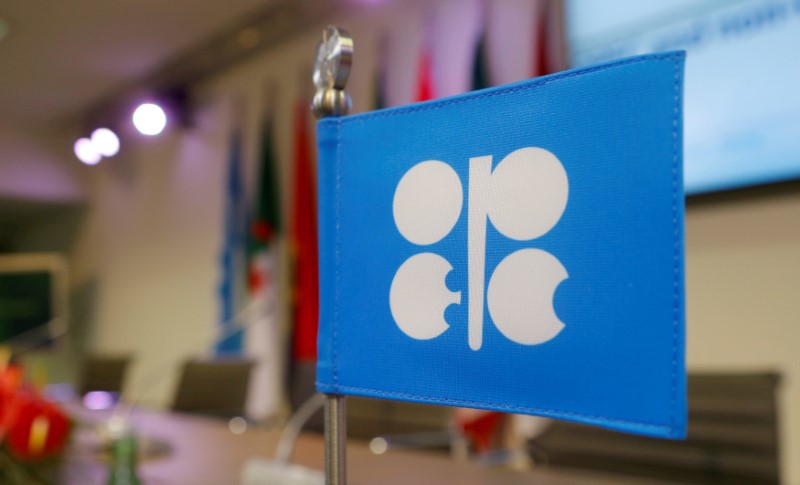By Julia Simon
NEW YORK (Reuters) - Oil prices rose on Friday, heading for a second week of gains on growing expectations that OPEC and other producing countries will agree at a meeting next week to extend crude output cuts.
Brent crude was up $1.02 at $53.53 at 1:22 p.m (1722 GMT) while U.S. benchmark crude oil was up 94 cents at $50.29. Both benchmarks slipped back from session highs after a report that U.S. energy companies added oil rigs again in the latest week.
Energy services firm Baker Hughes said U.S. drillers added oil rigs for an 18th week in a row, the second-longest streak of weekly additions on record.
The Organization of the Petroleum Exporting Countries (OPEC) and other producers including Russia meet on May 25. Market watchers expect them to extend output cuts of 1.8 million barrels a day until the end of March 2018.
The OPEC-led group is trying to reduce a global crude glut in the face of rising production in the United State. An OPEC panel is considering even deeper supply cuts to try to boost prices and reduce forward selling.
Rob Haworth, senior investment strategist at U.S. Bank Wealth Management, said hedge funds expect the crude glut to recede.
"Time and again they are rebuilding long positions," he said. "There seems to see this persistent bias to buy on the dips. They’re not getting bearish, they’re coming back in."
Many investors remain concerned about growing U.S. crude production, which has climbed 10 percent since mid-2016 to 9.3 million barrels per day.
U.S. drillers added eight oil rigs in the week to May 19, bringing the total count to 720, the most since April 2015, according to Baker Hughes.
On Thursday, official data showed OPEC leader Saudi Arabia's crude exports rose 275,000 bpd in March from February and its stockpiles increased.
This weekend, U.S. President Donald Trump heads to Saudi Arabia, where state oil company Saudi Aramco is set to sign investment deals with several U.S. companies.
Iran holds its first round of presidential elections this weekend. In a note on Friday, Commerzbank (DE:CBKG) wrote that if President Hassan Rouhani remains in office, it should encourage Western investment and bring "a noticeable rise in Iranian oil production."

If the winner is Ebrahim Raisi, a critic of Iran's nuclear deal with the West, the bank said new sanctions "would then very likely be imposed ... which could reduce the oil supply from Iran."